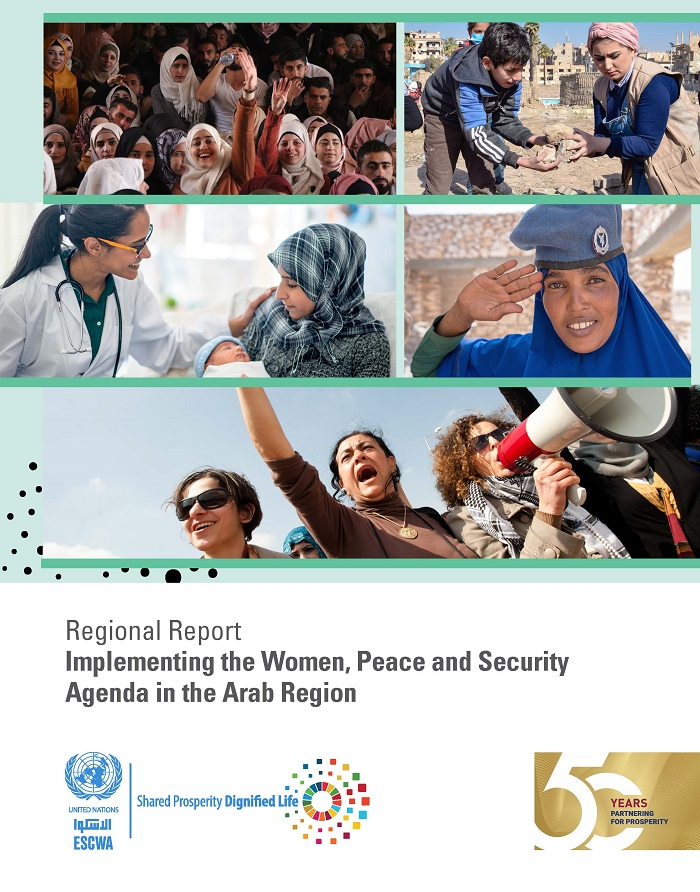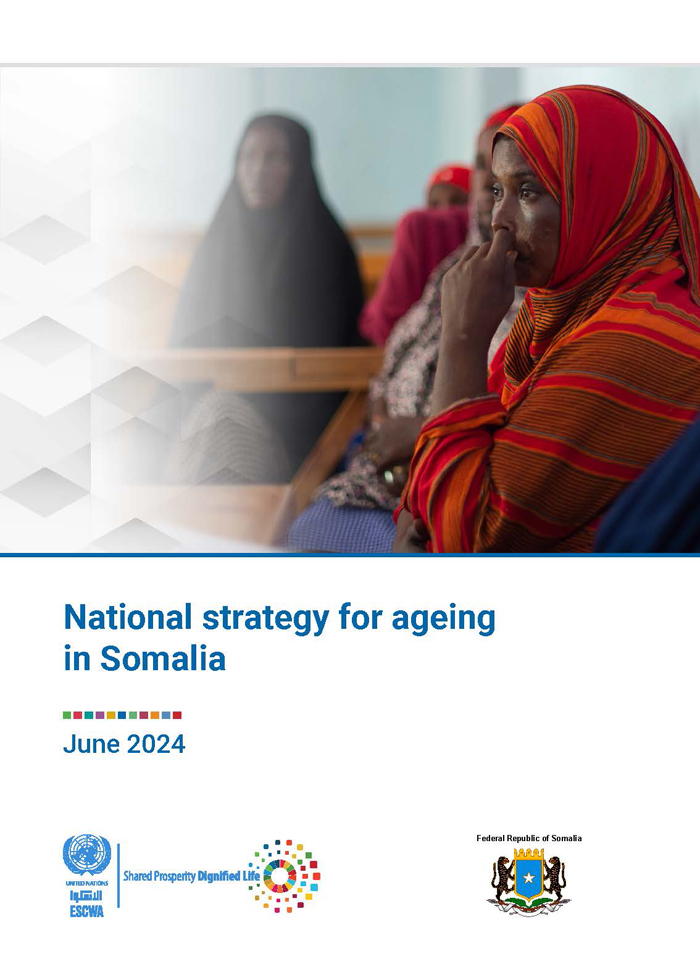
ESCWA Publication: E/ESCWA/CL2.GPID/2023/2
Country: Arab region, Republic of Iraq, Hashemite Kingdom of Jordan, Lebanese Republic, State of Palestine, Republic of Sudan, Republic of Tunisia, Republic of Yemen
Publication Type: Reports & studies
Cluster: Gender Justice, Population and Inclusive Development
Focus Area: Gender equality, Inclusive development, Population dynamics & migration
Initiatives: Women, peace and security
SDGs: Goal 3: Good Health and Well-Being, Goal 5: Gender Equality, Goal 16: Peace, Justice and Strong Institutions
Keywords: Programmes of action, Civil service, Human security, Gender-based violence, Decision-making, Women's advancement, Peacemaking, Gender equality, Women's status, Human security, Girls, Women in politics, Programme implementation
Implementing the Women, Peace and Security Agenda in the Arab Region
August 2023
The adoption of dedicated National Action Plans (NAPs) remains the most concrete action that States can undertake to advance the Women, Peace and Security (WPS) agenda in the Arab region. The increasing number of Arab States opting to develop NAPs dedicated to WPS is a positive sign and a step in the right direction. However, despite this progress, implementation of NAPs remains a challenge in the Arab region.
The present report serves as a stocktake of the WPS agenda in the Arab region. It finds that Arab States have increasingly been advancing their respective WPS agendas, particularly over the past five years. As more States develop NAPs, it is anticipated that the region will shift towards the establishment of a normative framework on WPS. Overall, however, the approach has been piecemeal, focusing on areas of WPS that overlap with existing policies, frameworks and institutional set-ups with a modest gradual expansion of these overlapped areas to address emerging priorities and opportunities, particularly in relation to enhancing women’s participation and strengthening protection measures. Whatever progress has occurred at the structural level has not necessarily translated into significantly noticeable or substantive gains for women and girls within the region.
Related content
Gender equality
, Inclusive development
, Population dynamics & migration
,
The adoption of dedicated National Action Plans (NAPs) remains the most concrete action that States can undertake to advance the Women, Peace and Security (WPS) agenda in the Arab region. The increasing number of Arab States opting to develop NAPs dedicated to WPS is a positive sign and a step in the right direction. However, despite this progress, implementation of NAPs remains a challenge in the Arab region.
The present report serves as a stocktake of the WPS agenda in the Arab region. It finds that Arab States have increasingly been advancing their respective WPS agendas, particularly over the past five years. As more States develop NAPs, it is anticipated that the region will shift towards the establishment of a normative framework on WPS. Overall, however, the approach has been piecemeal, focusing on areas of WPS that overlap with existing policies, frameworks and institutional set-ups with a modest gradual expansion of these overlapped areas to address emerging priorities and opportunities, particularly in relation to enhancing women’s participation and strengthening protection measures. Whatever progress has occurred at the structural level has not necessarily translated into significantly noticeable or substantive gains for women and girls within the region.



